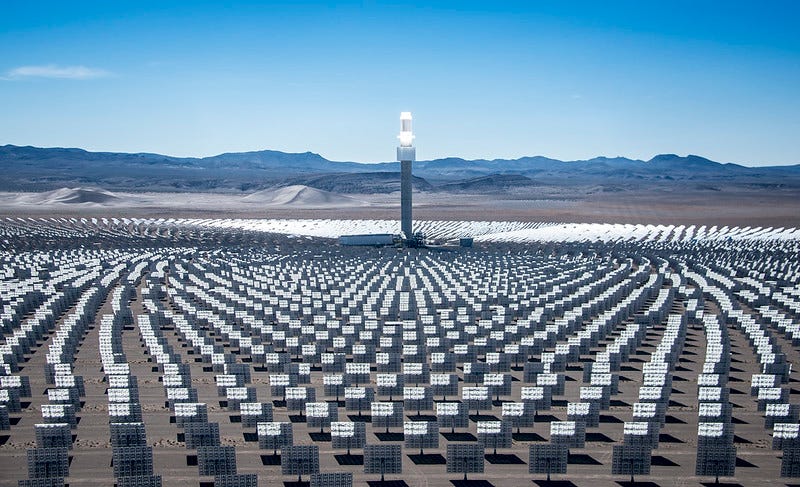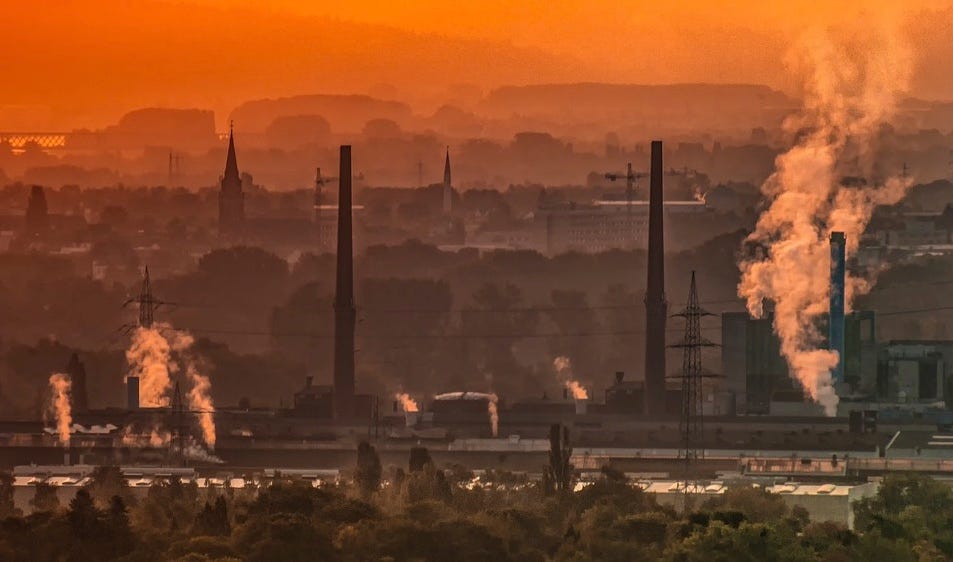CEOs get real about the coming cost of climate change
Welcome to Callaway Climate Insights. Especially to our new subscribers from over the holidays. Please enjoy, and share with your colleagues.
Today’s edition is free. To read our insights and support our great climate finance journalism five days a week, subscribe now for full access.

Mark Hulbert, one of the smartest investment analysts I know and a longtime Callaway Climate Insights columnist, has been banging the drum for almost four years now about how sustainability investors might have to sometimes accept lower returns to achieve climate goals. (See Hulbert’s columns).
Now a group of several hundred CEOs apparently agrees with him. According to the latest PwC annual report on CEO intentions, as many as 40% of some 4,000 CEOs worldwide said they would be willing to accept lower returns on investment to make progress fighting climate change.
The report also details that most of those who are focused on sustainability are pushing decarbonization, rather than nature-based investing or workplace education. Energy efficiency is also popular.
The ambition and willingness to take lower returns won’t be celebrated by anti-ESG advocates, who believe any strategies involving climate change — much less those that see lower returns — is bordering on criminal. Morningstar Inc. became the latest big asset manager to shrink back from its ESG ambitions this week, telling investors it will no longer rate the ESG efforts of some portfolio managers.
But the report drives home Hulbert’s enduring point that climate investing is a journey that has to be more about just returns, or politics for that matter. It needs to accept that business imperatives, such as the cost of human capital, social good, and yes, sustainability, are worth the extra cost.
Don’t forget to contact me directly if you have suggestions or ideas at dcallaway@callawayclimateinsights.com.
Follow us . . . .
Twitter | LinkedIn | Facebook | Instagram
Zeus: Montana 16 backer rolls out national campaign

. . . . Our Children’s Trust, which backed the first successful U.S. climate lawsuit that argued fossil fuels endanger the health of young people last year in a famous case known as the Montana 16, is now taking its campaign national, writes David Callaway. Already, litigation has been filed in California and several other legal strategies are underway, including at state ballot boxes, according to Mat dos Santos, managing attorney at the trust, who spoke to Callaway at an event in San Francisco. Read about the forthcoming strategy here. . . .
Thursday’s subscriber insights

The U.S. renewable that's truly sizzling
. . . . With wind power, especially offshore, lagging, solar power is streaking ahead in the U.S. renewables race. A look at the latest figures and how it could play out for business. Read more here. . . .
Sparkling federal initiative could help solar soar
. . . . Where does the U.S. have empty land with lots of sunshine? In the West. And who owns a lot of that land? The Bureau of Land Management, which oversees about an eighth of the U.S.’s total landmass. And now the agency is opening large swaths to solar projects. Could be a game changer. Read more here. . . .
Editor’s picks: Gates on climate; plus, freezing temps in a warming world
Watch the video: Bill Gates joins Yahoo Finance’s Julie Hyman and Brian Sozzi from the World Economic Forum in Davos, Switzerland to discuss climate challenges and the impact that the 2024 election could have on climate change in the United States.
Wild weather swings
As much of the U.S., and indeed, the Northern Hemisphere, face serious winter storms and record-breaking cold temperatures, there’s been a resurgence in climate denialism. And people have been asking how it is that these extreme cold events are expected to continue even as global temperatures rise. A report from ABC News notes that the EPA says research shows that widespread freezing events can still happen in a warming climate. That’s because climate change precipitates extreme weather patterns including severe heat waves and deep freezes. The EPA says, “If the climate were completely stable, one might expect to see highs and lows each accounting for about 50 percent of the records set. Since the 1970s, however, record-setting daily high temperatures have become more common than record lows across the United States. The decade from 2000 to 2009 had twice as many record highs as record lows.”
Latest findings: New research, studies and projects
Feet to the fire in the climate crisis
Firms are increasingly announcing targets to reduce their carbon emissions, but it is unclear whether they are held accountable for these targets. In this paper, titled Accountability of Corporate Emissions Reduction Targets, the authors examine emissions targets that ended in 2020 to investigate the prevalence of missed targets, how firms disclose target results, and whether there are consequences for missed emissions targets. Using data from the CDP, 1,041 firms have emissions targets ending in 2020, of which 88 (8%) failed and 320 (31%) disappeared. We find limited evidence of accountability and low awareness of the target outcomes. Only three of the failed firms are covered by the media. After a firm fails its 2020 emissions target, we do not observe significant market reaction, changes in media sentiment, environmental scores, and environment-related shareholder proposals. In contrast, we observe significantly positive reactions in media sentiment and environmental scores when firms initially report setting their 2020 emissions targets. Authors: Xiaoyan Jiang, Harvard University - Business School; Shawn Kim, University of California, Berkeley - Haas School of Business; Shirley Lu, Harvard University - Business School.
More of the latest research:
Funding the Fittest? Pricing of Climate Transition Risk in the Corporate Bond Market
Catastrophe’s Long Reach: How Historical Natural Disasters Shape Modern Entrepreneurship?
Words to live by . . . .
“When you run a company, you want to hand it off in better shape than you found it. In the same way, just as we shouldn’t leave our children or grandchildren with mountains of national debt and unsustainable entitlement programs, we shouldn’t leave them with the economic and environmental costs of climate change.” — Henry “Hank” Paulson, American financier and the 74th U.S. Secretary of the Treasury.





